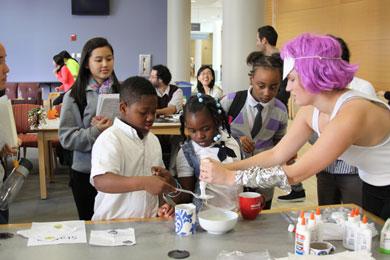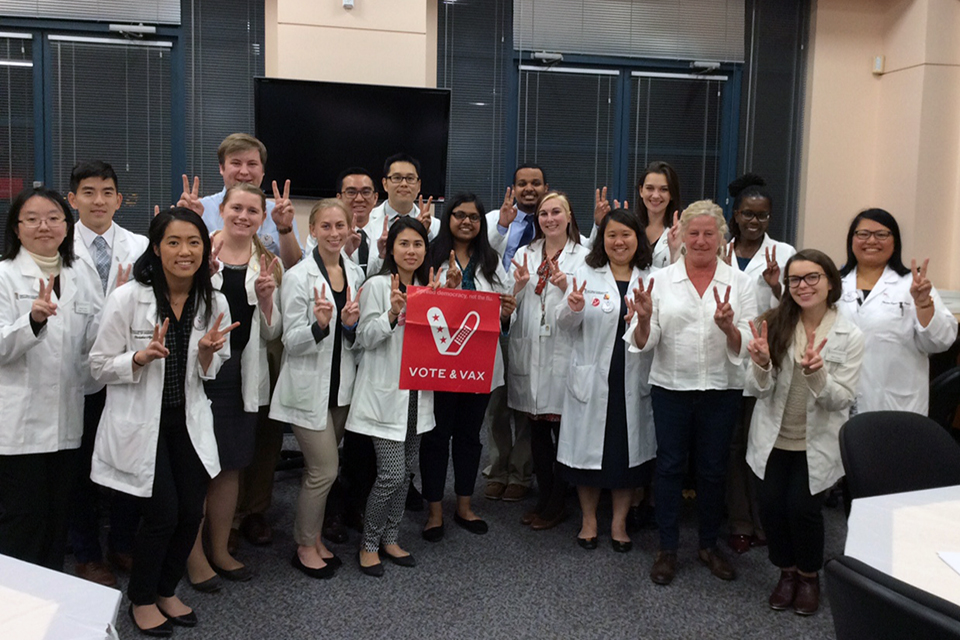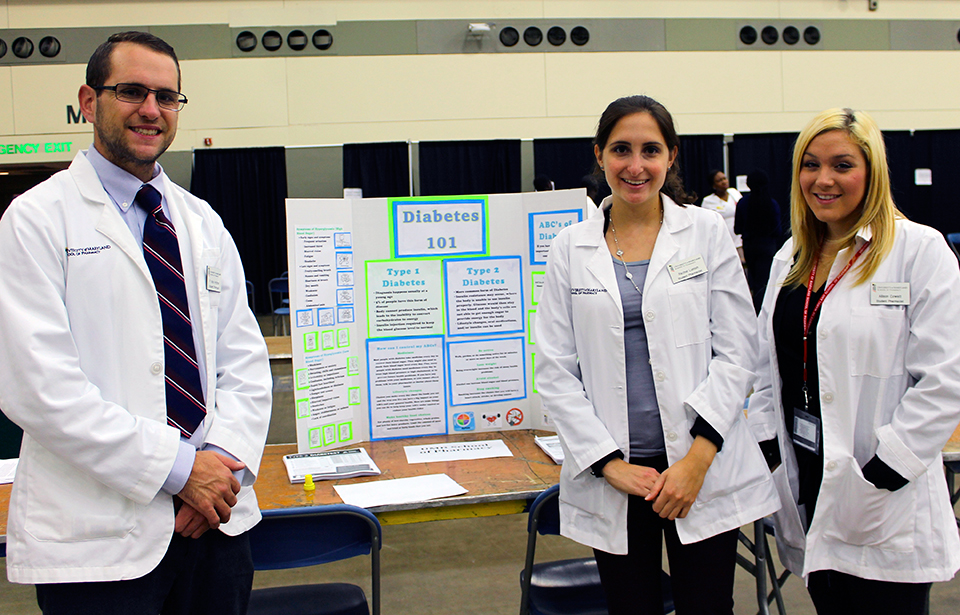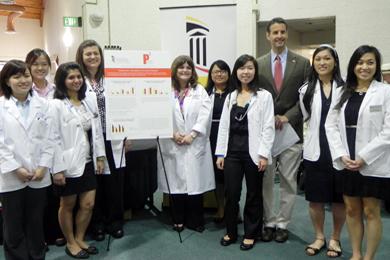Local Students Celebrate Healthy Halloween at the School of Pharmacy
SOP’s student organizations engage children and chaperones in a wide range of diabetes education and prevention activities.

By Malissa Carroll
October 31, 2013
On Oct. 29, the University of Maryland School of Pharmacy was crawling with ghosts, ghouls, and other spectacular spooks as it welcomed more than 20 third and fourth grade students from George Washington Elementary School to its annual “Healthy Halloween” celebration. Hosted by the American Pharmacists Association Academy of Student Pharmacists’ (APhA-ASP) Operation Diabetes, Healthy Halloween helps raise awareness about diabetes and measures that children and their parents and guardians can take to prevent this chronic disease.
“The children who participate in Healthy Halloween often already know a lot about diabetes,” says Stephanie Yager, a third-year student pharmacist at the School and co-chair of Operation Diabetes. “Many of them have family members who have been diagnosed with diabetes, and some even have relatives who have died as a result of complications associated with this serious illness. We take this opportunity to offer them more education as well as provide advice that they can use to help prevent them from developing this disease.”
Although the health fair, which was organized by members of nearly a dozen student organizations and consisted of posters and activities related to diabetes education, nutrition, exercise, and general health, formed the largest part of the event, the haunted house staged by members of the School’s Kappa Psi Pharmaceutical Fraternity stole the show. Located in the School’s Objective Structured Clinical Examination (OSCE) Suite, it offered terrifying thrills and chills for all who dared to enter.
“The haunted house was so cool,” remarked one student. “I’ve never seen anything like it.”
Yager says that Healthy Halloween offers a great opportunity to “bring awareness and fun together,” and notes that this opportunity doesn’t end with the children. Operation Diabetes also strives to educate the chaperones who accompany the children during their visit to the School, as adults were invited to join in this scary good time with the children as they played games, including “Guess How Much Sugar is in Your Favorite Snack?”, and learned about the risks associated with energy drinks and how to tell the difference between medication and candy.
“The number of children affected by obesity continues to increase each year, which puts them at risk for developing a number of health-related problems, including diabetes,” says Yager. “It’s impractical to assume that children will always make the best decision about what they should and should not eat, which is why we believe that it’s important to raise awareness among parents and guardians about what their children are eating and provide suggestions for healthier alternatives.”
To conclude the event, student pharmacists delivered a presentation about what they know best: careers in pharmacy. The children were introduced to the steps that they would need to follow to pursue a career in pharmacy as well as the wide range of opportunities available to them should they decide to enter this respected health care profession.
“I love being able to expose students from our partner schools in west Baltimore to events like Healthy Halloween,” says Brian Sturdivant, MSW, director of community partnerships and strategic initiatives at the University of Maryland, Baltimore (UMB). “Club UMB, a free after-school mentoring and youth leadership program supported by the President’s Outreach Council, has participated in this activity since 2010, and I was thrilled that the School of Pharmacy extended an invitation to our fantastic partners at George Washington Elementary School to return this year. It was a real ‘treat’ to bring students back for Healthy Halloween.”
Nearly one dozen student organizations contributed to this year’s Healthy Halloween, helping to make the event a great success for all who attended. Participating student organizations included the Phi Lambda Sigma Leadership Society, Rho Chi Society, Pediatric Pharmacy Advocacy Group, APhA-ASP’s Maryland Regional Operations, College of Psychiatric and Neurologic Pharmacists, APhA-ASP’s Operation Self-Care, Students Promoting Awareness, APhA-ASP’s International Pharmaceutical Students Federation, and A Bridge to Academic Excellence.



